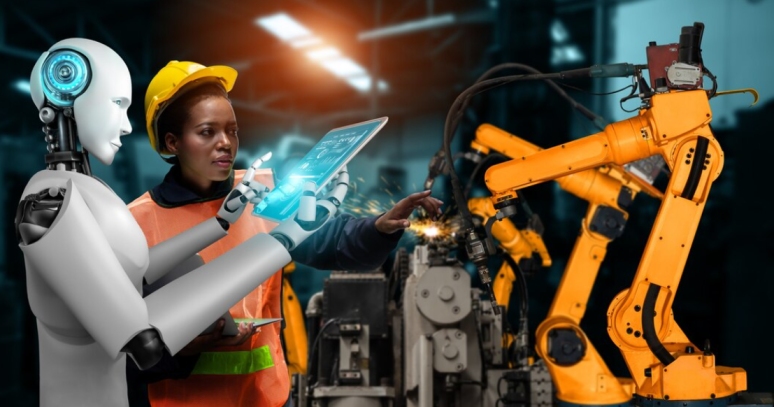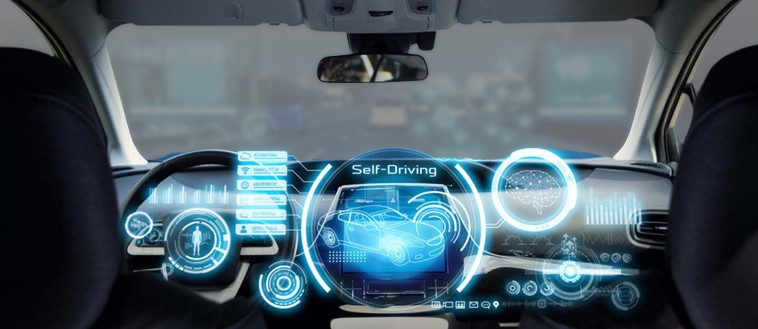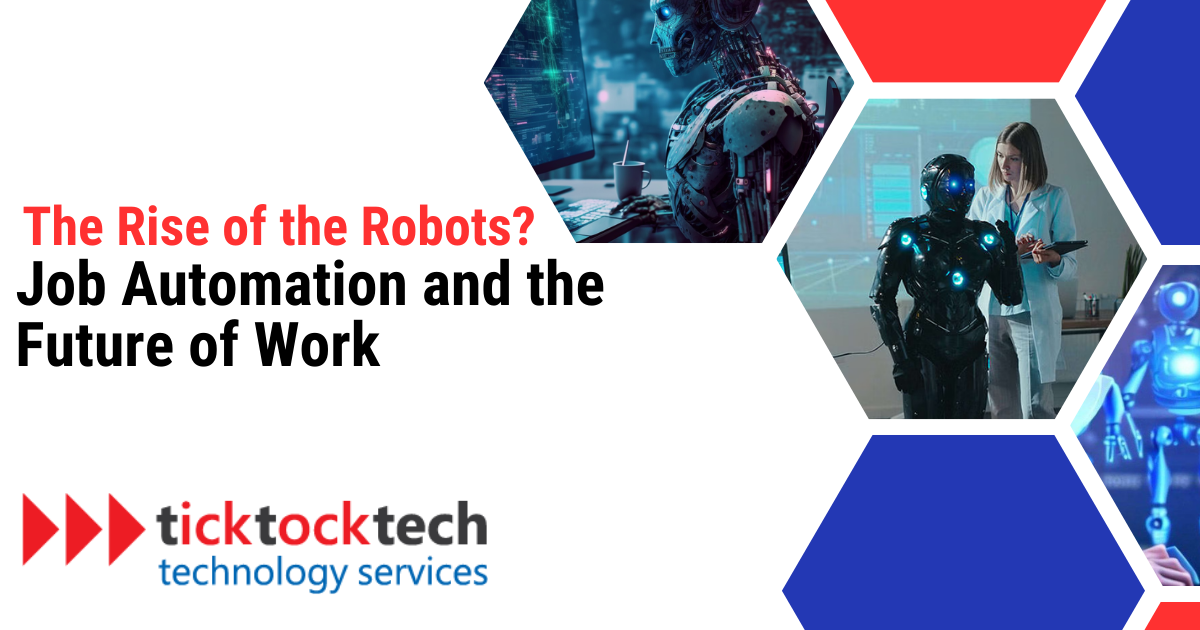As industries embrace artificial intelligence and robotics, questions arise about the future of work and the potential impact on human employment. Will robots replace humans in the workforce, or will they help us do our jobs better?
What is the future of robotics and automation?
The future of robotics and automation brings both excitement and apprehension. On the sunny side, the advancements in technology have the potential to make our tasks more efficient.
However, there are valid concerns about the impact of automation on the job market. A report from McKinsey reveals that by 2030, robots have the potential to automate tasks that currently occupy up to 30 percent of the working hours in the US economy. As technology continues to advance and become more advanced, certain job roles could be replaced by robots. Industries like manufacturing, transportation, and customer service are already experiencing significant changes due to automation. Also, jobs that involve routine tasks, such as assembly line work or data entry, may be vulnerable to automation.

It’s important to note that not all jobs are at risk of being taken over by robots. Certain roles require human skills that are difficult to replicate, such as empathy, creativity, and critical thinking. For example, professions in healthcare, education, and the arts heavily rely on human interaction and emotional intelligence. These jobs are less likely to be affected, as they involve a level of complexity that robots may be unable to achieve.
To thrive in this situation, individuals must embrace artificial intelligence (AI) and learn new skills. Instead of fearing the rise of robots, consider it as an opportunity to enhance your abilities and stay ahead in the job market.
Remember, the rise of automation and robotics doesn’t mean the complete elimination of jobs. While some roles may be automated, new opportunities will also arise. As AI becomes more prevalent, there will be a growing demand for individuals who can develop and manage these technologies.
What jobs are likely to be automated?
While technological advancements bring numerous benefits, they also raise concerns about the potential impact on the job market. In this section, we will explore some jobs that are likely to be automated.
1. Researchers and Analysts
Research and analysis fields are already incorporating AI into their processes to streamline operations. Data analysis and research can be time-consuming, but AI algorithms can efficiently sort, extrapolate, and analyze data. As AI continues to improve, there may be less need for humans to play a role in these areas, as AI can handle the tasks with speed and accuracy.
2. Sales Representatives
Salespeople in traditional advertising and retail activities are also facing the impact of automation. With the shift towards online advertising and social media landscapes, companies can now target their specific audiences. The built-in marketing capabilities of social media platforms allow advertisers to create customized content for different audiences.
3. Customer Representatives
Customer service representatives are among the jobs most prone to automation. With the rise of AI-powered chatbots and virtual assistants, companies can now provide automated responses to frequently asked questions.
4. Accountants and Bookkeepers
Accountants and bookkeepers are another group of professionals whose jobs are being automated. AI-powered bookkeeping services offer an efficient accounting system, flexibility, and security. These services use AI algorithms to collect and analyze data.
Which jobs will not be replaced by AI?
While certain jobs are at risk of being automated, there are roles that AI is unlikely to replace. These jobs require unique human skills and qualities that are difficult to replicate.
1. Leadership Roles
CEOs, managers, and other leadership positions are crucial for managing a company’s workforce. They are responsible for making strategic decisions, managing growth, and inspiring their team to achieve their goals.
2. Teachers
Teachers play a vital role in education, and their impact extends beyond passing knowledge. They inspire, motivate, and guide students, often becoming a reference point in their lives. The personal connection and support that teachers provide make it unlikely that we will have a fully digital teaching experience in the future.
3. Entertainers
Artists, musicians, and other entertainers bring a creative and imaginative touch to their work. The magic of creating art is unique to human creativity.
4. Medical Practitioners
Surgeons, doctors, and nurses possess unique skills and expertise that AI cannot fully replicate. Being a surgeon requires connecting with patients on many levels. Experience, knowledge and the ability to make split-second decisions are critical in the operating room.
5. System Analysts
Computer system analysts play a crucial role in maintaining complex software and hardware systems. This involves reviewing system capabilities, controlling workflow, and making improvements. The coordination and troubleshooting skills required in this role make it unlikely to be fully automated.
How will robotics and automation change the future of work?
The rise of robotics and automation is expected to reshape the future of work in several ways. While some fear that automation will lead to widespread job losses, others believe it will create new job opportunities.
For example, self-driving cars and trucks will create new jobs in areas such as programming, maintenance, and repair, while also increasing efficiency and safety in the transportation industry.

It is crucial to understand that automation is not an all-or-nothing scenario. Rather than replacing humans entirely, automation has the potential to aid human capabilities and improve productivity.
According to a WEF report, automation technologies and artificial intelligence may displace around 75 million jobs. However, the report also highlights that this disruptive change in the workforce could lead to the emergence of approximately 133 million new roles as companies restructure their division of labor between humans and machines. As a result, the report predicts a net increase of 58 million new jobs. This indicates that while job displacement is a concern, the impact of automation on employment is expected to result in many new job opportunities.
How to embrace AI and learn skills to take advantage of new technologies
Embracing AI and learning new skills is essential to taking advantage of new technologies. According to a report by Gartner, 70 percent of organizations are set to implement AI technologies to enhance employee productivity. This growing trend highlights the need for workers to upskill and reskill to stay relevant in the job market. Let’s explore the different ways to embrace AI and learn new skills.
1. Learn AI Literacy
Understanding the basics of AI is essential in today’s job market. In addition, you can specialize in fields that complement AI, such as data science, machine learning, or cybersecurity.
2. Develop Soft Skills
While AI is great at performing routine tasks, it’s still far from replicating human emotional intelligence. Developing soft skills such as communication, problem-solving, and collaboration will be crucial in the era of AI. Focus on building strong interpersonal skills, empathy, and critical thinking abilities.
3. Embrace Lifelong Learning
In the era of AI, it’s crucial to embrace lifelong learning. Be open to new technologies, and be willing to learn new skills throughout your career. This means taking courses and keeping up-to-date with the latest trends in your industry.
Conclusion: Job Automation and the Future of Work
Automation is transforming the job market, and some roles are more likely to be automated than others. Jobs involving repetitive tasks face a higher likelihood of automation, while those demanding creativity and emotional intelligence are less susceptible to AI replacement. Humans need to adapt and embrace new technologies to thrive in the changing landscape of work. By upskilling and developing soft skills, you’re well-prepared for the changing job market. With the right strategies and mindset, you’ll thrive in a world with AI.

